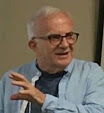from an ancient ony ceremof covenant renewal,
recorded in Deuteronomy 30: 19-20a
“Why do you seek the living among the dead?”
Jesus, as recorded in Luke 24:5b
“When it's over, I want to say: all my life
I was a bride married to amazement.
I was the bridegroom, taking the world into my arms.”
Mary Oliver, from “When Death Comes”
Collected Poems
In the heart of every religion lies its distinguishing affirmation: the Shema in Judaism, the incarnation/resurrection in Christian teaching. Buddhism’s fourfold noble truth, the circle in Native American spirituality. Beneath these affirmations lies a deeper and more fundamental insight: to be human is to live constantly in the presence of choice. Choices are intellectual, ethical, relational. Our choices open us to deeper life, or rob us of vitality. They expand our minds and hearts, or constrict our spirits. Every wisdom tradition offers its own hard-won experience to guide our choices, but the choices remain uniquely ours to make.
Religion is obsessed with Life – life that is full, fecund and abundant, life that is alive and forever escapes definition. Judaism’s railing against idols is its way of distinguishing Life from all that imitates or diminishes it. Buddhists perceive the vitality within or beyond the illusions that clamor for our attention. “Let the dead bury the dead,” Jesus instructs, forcing upon us a reconsideration of our most elementary notions.
Our experience confirms that this world bears an ambivalent character. On the one hand it carries within it the “original blessing” of God’s creation; it is the chosen medium of divine life and self-expression. Only in this world do we know grace, loveliness and awe. Only in this world can we experience a love that casts out fear, and a hope greater than death itself. On the other hand, this world continually disappoints us. It produces tawdry substitutes for authentic life. It offers cheap grace when sacrifice is required. It presents idols of attractiveness that promise more than they deliver.
Spiritual discernment seeks to recognize Life in the midst of all that is false. Spiritual liberation begins when we serve Life with all our heart, soul, mind and strength.












